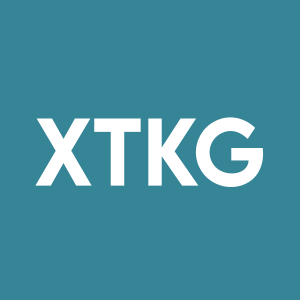[SCHEDULE 13D/A] X3 Holdings Co., Ltd. SEC Filing
Rhea-AI Filing Summary
Schedule 13D/A (Amendment 5) for X3 Holdings Co., Ltd. ("XTKG") discloses a significant insider equity award and updated ownership details.
On 18 June 2025 the issuer granted 650,000 Class B ordinary shares (30 votes per share) to Hogstream International Ltd., an entity wholly owned by Co-CEO Stewart Lor, as equity compensation for services rendered in FY-2024. Together with pre-existing holdings, Hogstream now owns 662,206 Ordinary Shares (11 Class A and 662,195 Class B). This represents only 1.78 % of the outstanding equity (based on 37,258,859 total ordinary shares) yet confers approximately 27.4 % of the company’s total voting power (19,865,861 votes of 72,412,514).
Lor, as sole shareholder of Hogstream, has sole voting and dispositive control over the shares. No cash consideration was paid; the award is intended to align Lor’s long-term interests with those of the company and to aid retention. Apart from potential future purchases or disposals depending on market conditions, the filing states no present plans that would trigger corporate actions listed under Item 4 of Regulation 13D.
The filing contains no earnings data but is material to investors monitoring insider control and potential dilution. While economic dilution is minor, the disproportionate voting rights consolidate management influence and may affect future corporate governance dynamics.
Positive
- Alignment of interests: Equity-based grant ties Co-CEO compensation to company performance.
- Cash preservation: Non-cash issuance avoids near-term liquidity drain.
Negative
- Governance risk: 27.4 % voting power with only 1.78 % economic stake heightens minority-shareholder vulnerability.
- Potential dilution: Issuance increases outstanding share count, albeit modestly (≈1.7 %).
Insights
TL;DR: CEO gains 27.4 % voting power with just 1.78 % equity—elevated governance risk.
The award of 650 k Class B shares sharply increases Stewart Lor’s influence without proportional economic exposure. Dual-class structures already attract scrutiny; this move deepens the wedge between cash-flow rights and control. Investors should weigh the potential for entrenchment, related-party transactions, and reduced accountability. While retention incentives are valid, the 30-votes-per-share structure means future shareholder resolutions can be swayed by a minority economic holder. Absent sunset provisions, proxy advisers may view this negatively, possibly influencing index eligibility and ESG scores.
TL;DR: Minimal economic dilution; neutral impact on valuation but watch control dynamics.
From a valuation standpoint, issuing 650 k shares (≈1.7 % of total) is immaterial to EPS or book value. The non-cash grant preserves liquidity and signals confidence in leadership stability. However, the enlarged voting stake could alter strategic direction or M&A outcomes, affecting minority shareholders’ influence. Near-term trading impact is likely muted, yet governance discounts may surface if investors price in higher agency risk.







